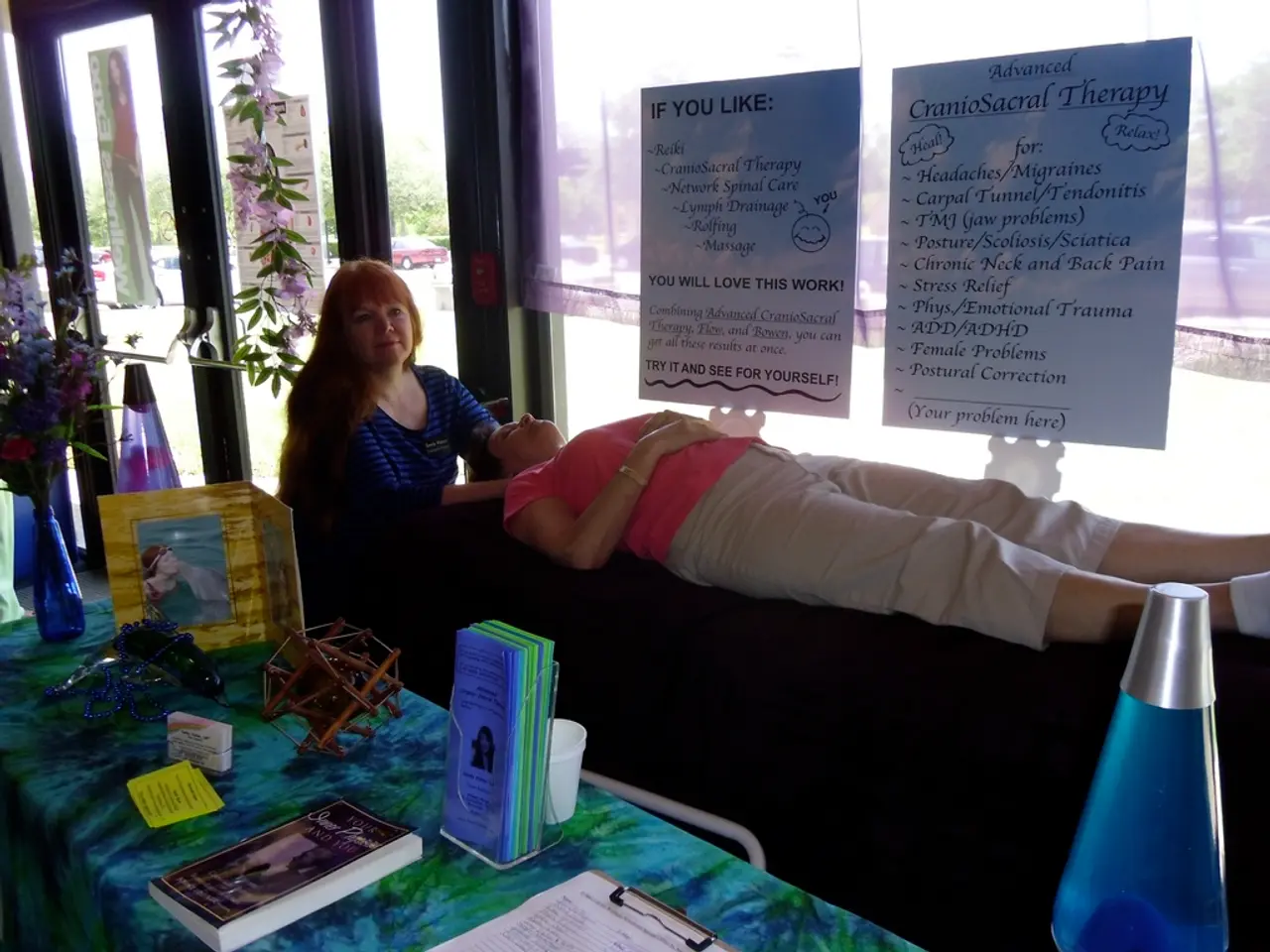Obsessive-Compulsive Disorder (OCD) and Depression: Understanding Links, Distinctions, and Further Insights
Co-occurrence of Obsessive-Compulsive Disorder (OCD) and Depression: A Complex Interplay
The co-occurrence of Obsessive-Compulsive Disorder (OCD) and depression can significantly impact a person's daily functioning, relationships, and overall quality of life [2][4]. OCD, a mental health condition that causes intrusive thoughts and repetitive behaviors, can cause distress and adversely affect various aspects of a person's life, including interpersonal relationships, leisure activities, school functioning, work functioning, and general satisfaction with life [2].
When depression is also present, symptoms like low mood, lack of motivation, and feelings of hopelessness can compound the challenges, making it harder for the person to engage in OCD treatments and manage daily tasks [2][4].
Treatment Options
Treating both OCD and depression simultaneously is crucial for the best outcomes [2][4]. Combined therapy is essential, with treatments such as Cognitive Behavioral Therapy (CBT), especially Exposure and Response Prevention (ERP), being core for OCD. These therapies help patients confront triggers and reduce compulsions gradually [1][3].
Depression treatment often involves antidepressants, some of which are effective for both OCD and mood symptoms [1][3][5]. Newer options like Transcranial Magnetic Stimulation (TMS) show promise, especially when medication and CBT are not fully effective, by stimulating brain areas involved in both OCD and depression [5].
Integrated programs that treat OCD and depression together lead to better symptom control and improved quality of life [2][4]. Support groups, stress management, lifestyle changes, and holistic care further support recovery and coping [3].
The Link Between OCD and Depression
Research suggests that OCD can cause a person to develop depression. Rumination, or repeatedly thinking the same negative thoughts, is common in people with OCD and may be a factor in the development of depression. Compulsions in people with OCD often require specific actions, which some mental health professionals consider to be a form of rigidity [4].
A study that included 382 people with OCD found that OCD caused depressive symptoms and not vice versa. The study also found that obsessive thoughts related to harm and danger coupled with repeated unsuccessful efforts to dispel anxiety could lead to the development of depressive thoughts [4].
Contrarily, there is no evidence that depression causes a person to develop OCD. Perfectionism, a common symptom of OCD, is often associated with depression [4].
Managing Symptoms
Participating in regular physical activity can help ease symptoms of depression. Reaching out to connect with others can also help a person dealing with depression symptoms [4]. Obsessions are intrusive thoughts or urges that may cause a person to develop anxiety. Recognising these thoughts as obsessions and learning to manage them through therapy can help reduce their impact [4].
In summary, when OCD and depression co-occur, they often exacerbate each other’s impact, making comprehensive, multifaceted, and simultaneous treatment critical to improve functioning and life quality. Therapies like CBT/ERP, antidepressant medication, and innovative treatments such as TMS are central components of effective management [1][2][3][4][5].
Read also:
- Explored the Popular Health Assessment with a Queue of 100,000 Aspiring Participants - Here's My Unadulterated Opinion
- Hearing impairment condition: Recognizing symptoms and management approaches
- Exploring Recurring Actions in Mature Individuals: An Analysis of Persistent Actions in Adults' Daily Lives
- Signs of Cataracts Emergence: Impact on Vision and Further Details





